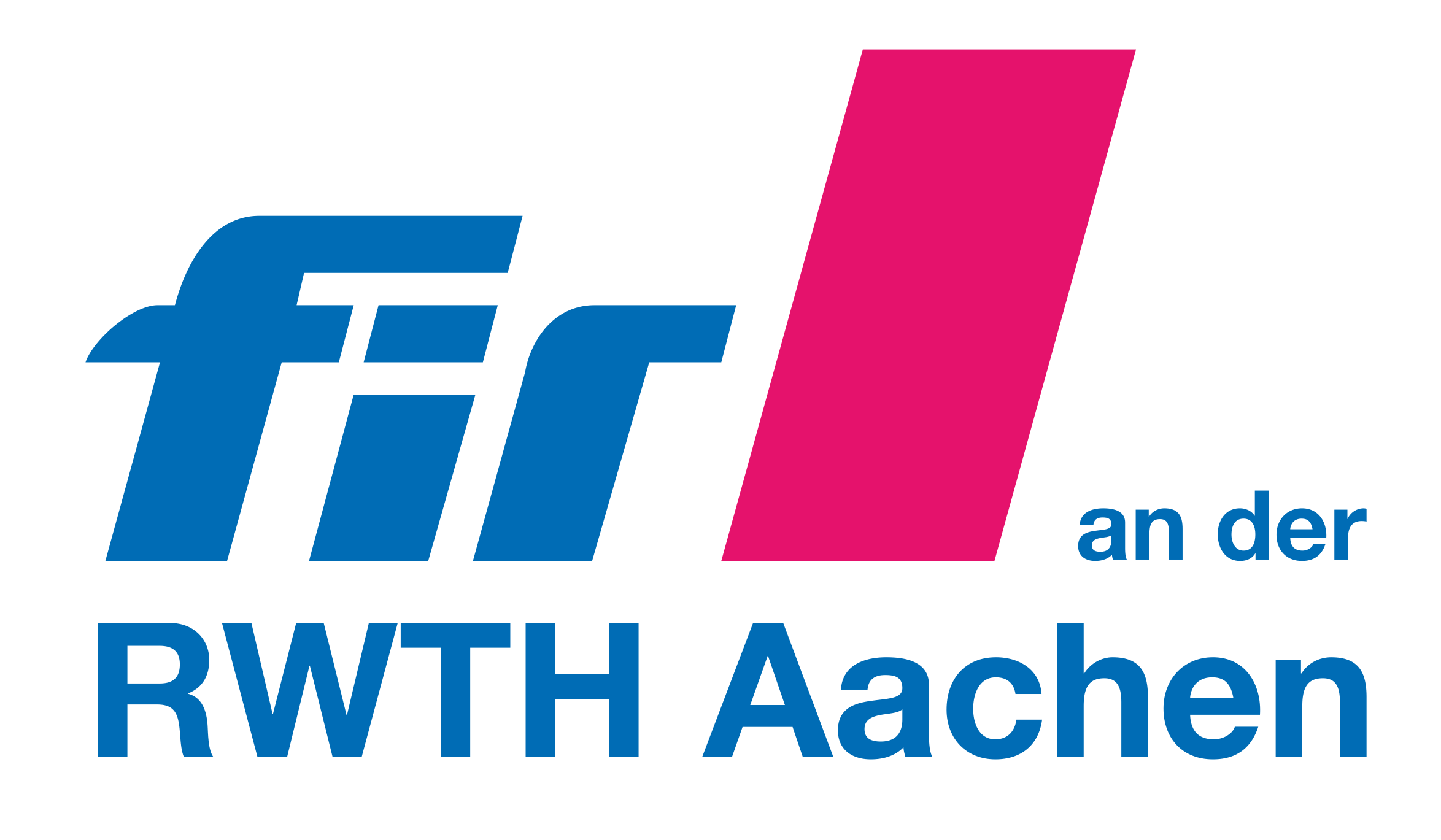iP4MoVE
Intelligent platform for e-mobility and networking of energy information

The aim of the iP4MoVE research project is to design and develop an intelligent platform for the optimal coupling of the mobility and energy sectors for smart mobility.
Initial situation
"The kilowatt hour itself will have no value in the future. But it will be worth something if it is either generated or consumed at the right place at the right time," explained Ulrich Schmack, Managing Director of Digital Energy Solutions at this year's leading trade fair for the energy and water industry, E-World (energate 2017). Exhibitors and visitors at last year's World of Energy Solutions (WES) agreed on the need to link the energy, heat and mobility sectors (Industrieanzeiger 2016).
Through the intelligent networking of the energy and mobility sectors, both sectors will be optimised in terms of energy system transformation and thus under the objective of "decarbonisation through the use of renewable energies". In addition, networking the "energy" sector with the mobility sector, which has traditionally been regarded as a separate sector, will create a
- ecologically and economically sensible planning of loading cycles, loading times and loading locations, coordinated with logistically sensible route planning, and
- locally optimised capacity utilisation through adapted energy storage and energy consumption
and thus opens up further flexibilities.
Solution
As a first step towards the conception and development of neighbourhoods, suitable zones for the formation of energy neighbourhoods are determined on the basis of identified influencing factors and boundary conditions. Furthermore, the requirements of logistics service providers for an optimal charging infrastructure will be considered. Typical transport routes are taken as a basis and optimal positions on long-distance routes and in the vicinity of neighbourhoods are identified on this basis. A sector coupling based on electrical energy and a balanced balance contribute to an additional increase in the autonomy of neighbourhoods. On the basis of previously determined relevant influencing factors, the optimal structure of the infrastructure including an optimal storage dimensioning is carried out. The design of electricity tariffs and charging offers, e.g. through dynamic price signals from the neighbourhoods, leads to a locally improved utilisation and utilisation of the energy network. The sector coupling is realised via a platform by mediating local supply and demand with local and supra-regional demand from the mobility sector. In addition, the platform enables real-time information exchange between vehicles and neighbourhoods. The app to be developed, which recommends qualified information about optimal loading points during or at the end of an optimal tour during the transport execution/tour, is to be evaluated in field trials. The overall results of the project will also be visualised in a demonstration environment and thus made accessible to an interested audience.
Expected result
Based on the development of a data-based platform and a context-based application, the core element consists of the mediation between energy supply and demand (energy information) as well as the realization of a real-time exchange between electric vehicle and quarter or charging stations inside and outside the quarter. In addition to determining the optimum degree of electrification (load traffic) and taking into account the resource-optimal use of transport and logistics chains, the research project should thus contribute to the ecological and economic design of electric mobility, in particular of load traffic, and the sustainable formation of neighbourhoods as well as the reduction of greenhouse gas emissions through the integration of regenerative energy sources and storage technologies. The prototype implementation in the project is intended to show exemplary synergetic potentials, especially at the NRW location, and to form a building block for smart mobility (mobility 4.0).
Benefits for the target group
The results of the project will serve to secure sustainable transport through the electrification of vehicles (Mobility 4.0).
Furthermore, the findings gained in the research project will raise new energy potentials and create intelligent, innovative mobility concepts through the networking and coupling of the energy and mobility sectors.
Project partners
Associated partners
Branch
- Transport and Logistics
Topic Area
- Production Management
Research Focus
- Supply-Chain-Management
FIR Topics
JRF Guiding Topic
- Society & Digitization
- Cities & Infrastructure





